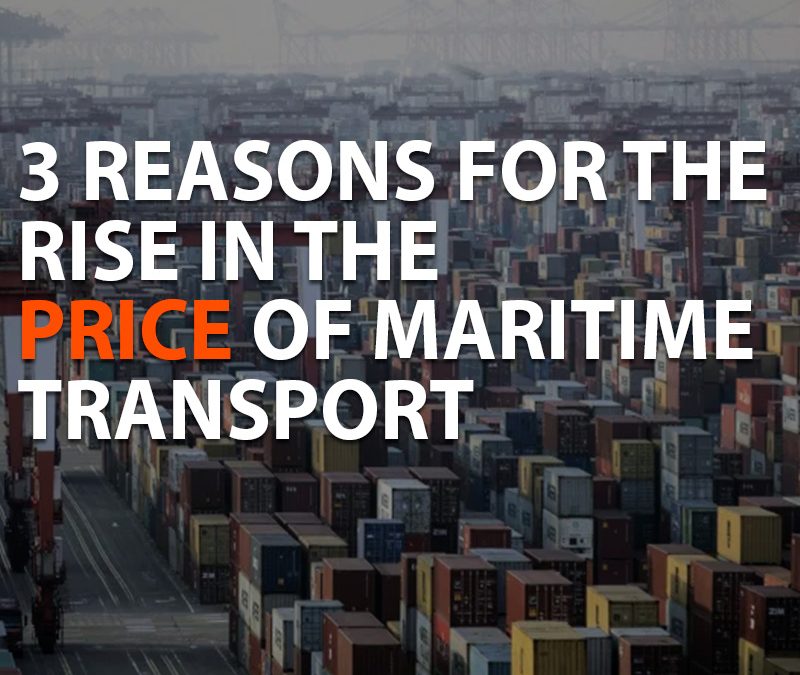Moving goods on major maritime transport routes has been creating many problems in recent months for companies’ logistics departments. The cost of maritime transport has tripled since Europe came out of lockdown, and the market has ruled out seeing again the low prices that helped the economy to recover and international trade after the 2017 crisis for a long time. There are several variables, among which the following are especially notable:
1.- COVID-19 (Specially in Europe and North America)
Due to the global uncertainty created by this unprecedented situation, the world economy was paralysed when the distribution companies reduced or cancelled many orders to their suppliers. In Europe, a lot of ships have left port with less cargo than expected having negotiated and sold a large proportion of their capacity.
During European lockdown, all shipping companies lost a lot of money due to having to fulfil the agreements they had signed. Today, to recover all these losses, shipping companies are increasing their freight charges each month.
2.- LACK OF CONTAINERS
China is experiencing an increase in its volume of exports to the main ports of the world, which means that many containers are sailing at the moment.
On top of this, there have been several cases of “congestion” at various ports. Los Angeles and Long Beach in the United States are examples; there are a total of 38 container ships waiting for a berth, plus 36 anchored, and as many again that have been sent to wait in designated areas at sea unil the anchors are available.
As if this were not enough, in recent weeks, there occurred recently a notable incident involving the EVER GIVEN in the Suez Canal, which has caused a delay in the availability of free containers to move merchandise.
All these circumstances has caused low rotation of the containers and, as a result, lack of equipment to load the new exports, and this leads to an increase in the price when contracting a maritime transport service.
3.- FUEL PRICE ALSO PLAYS AN IMPORTANT ROLE
Since the end of 2019, the world’s leading shipping companies have begun charging their users surcharges to meet rising prices for VLSFO (Very Low Sulphur Fuel Oil), which has been mandatory for ships since 1 January 2020 according to a provision imposed by the International Maritime Organization (IMO).
The so-called IMO 2020 initiative requires vessels that do not have treatment facilities to use VLSFO (a fuel with 0.5% sulphur content, compared to the 3.5% allowed before this measure). This forced the shipping companies to impose environmental surcharges, but the fall in oil prices during the COVID-19 pandemic has lowered the price of fuels and, as of today, the price has stabilised and shipping companies should have no need to apply extra surcharges due to the change in fuel; however, if in the future there are spikes in the price of VLSFO, the freight charge will automatically rise, something we must bear in mind.
For more information about this entry or about TEC CONTAINER Logistics please contact us at fsalazar@teccontainer.com






